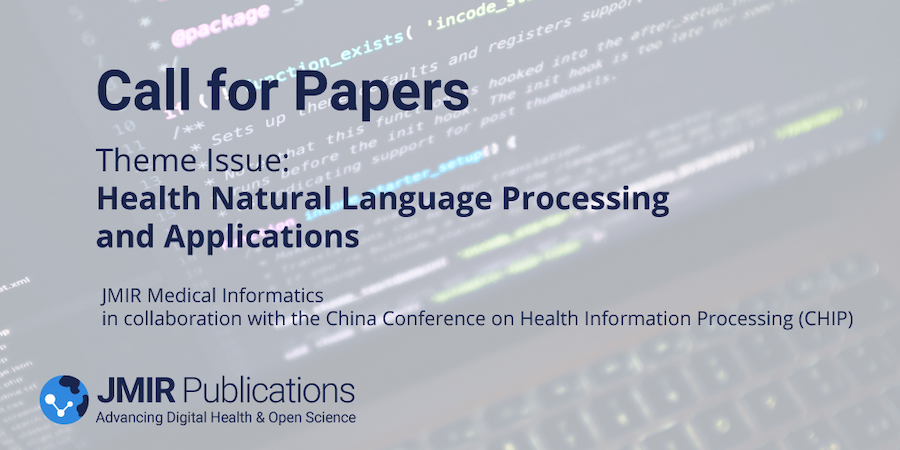
Call for Papers
With the rapid growth of information technology, there is a great need for the processing of massive health and medical data using advanced information technologies. A large amount of valuable data exists in natural text such as free diagnosis text, discharge summary, online health discussions, and eligibility criteria of clinical trials. Natural language processing (NLP) is a field of computer science, artificial intelligence, and computational linguistics concerned with the interactions between computers and human (natural) language texts. NLP aims to provide a computer program with the ability to process and understand unstructured texts. In the health area, NLP can assist medical decision making by automatically analyzing the commonalities and differences of massive text data and recommending appropriate actions on behalf of domain experts. The state-of-the-art NLP techniques have proven to be useful in dealing with the information overload problem in the health and medical domain, e.g., patient notes aggregation and summarization, treatment analysis, information extraction and retrieval on massive discharge summaries, and semantic understanding of patient queries.
To that end, the China Conference on Health Information Processing (CHIP) proposes this theme issue Health Natural Language Processing and Applications to contribute to the development of this interdisciplinary research area. CHIP is the annual symposium of the Chinese Information Processing Society of China (CIPS) Technical Committee of Medical, Health and Biological Information Processing. CHIP is a leading international conference specialized in the fields of health information processing in China. It serves as a main forum for researchers and practitioners from academia, industry, and government worldwide to share their ideas, research results and experiences for further promotion in the fields. The previous CHIP conferences were successfully held in 2015, 2016, 2017, 2018, 2019, 2020, and 2021.
CHIP will select the best-scored papers and recommend them for the theme issue. Meanwhile, the submission to this issue is open to the public. In this issue, articles regarding the use of technologies, methodologies, applications for NLP and the health/medical, and viewpoints/reviews are welcome. The theme issue will be expected to show a diversity of new developments in these areas. Authors are encouraged to submit high-quality original research articles mainly describing original research and presenting results that advance the state-of-the-art.
Potential topics include but are not limited to the following:
Health information extraction and information retrieval
Text mining or machine learning on medical, clinical, or social web data
Text corpora and semantic annotations for healthcare
Novel tools and ontologies for medical, clinical, or social web data interpretation and visualization
Healthcare knowledge representation and reasoning
Clinical decision support and informatics
Advanced machine learning methods and their applications to medical and health text data
NLP techniques for the personalization of medicine
NLP assisted health information aggregation, abstraction, and summarization
Question answering technologies for health application
Innovative NLP systems for mobile environment
Health and medical knowledge graphs
Health education and its applications
Trends and challenges in health and medical NLP
The instructions for authors to prepare this manuscript and use the web-based manuscript submission and tracking system can be accessed at:
https://medinform.jmir.org/author-information/instructions-for-authors
Authors can submit their manuscripts through the online submission system of the JMIR Medical Informatics: https://medinform.jmir.org/author
Articles accepted for the theme issue will receive a 20% discount off the article processing fee. For more information, please see:
https://www.jmir.org/fees/article-processing-fees
Guest Editors
Tianyong Hao, South China Normal University, China; haoty@m.scnu.edu.cn
Buzhou Tang, Harbin Institute of Technology, China; tangbuzhou@hit.edu.cn
Zuofeng Li, Takeda China, China; zuofeng.li@takeda.com